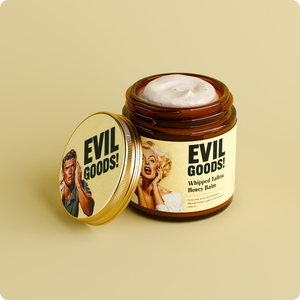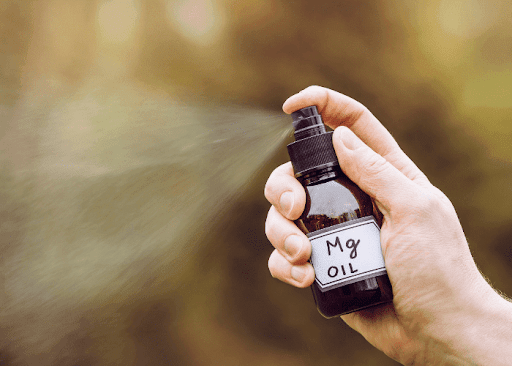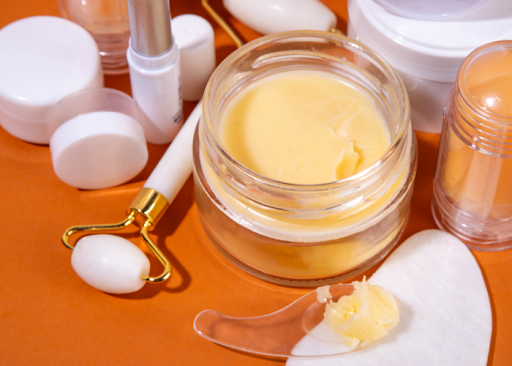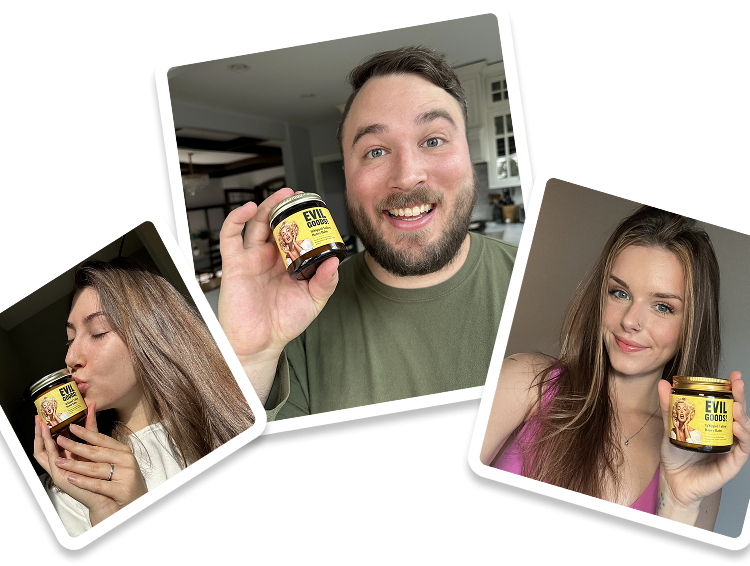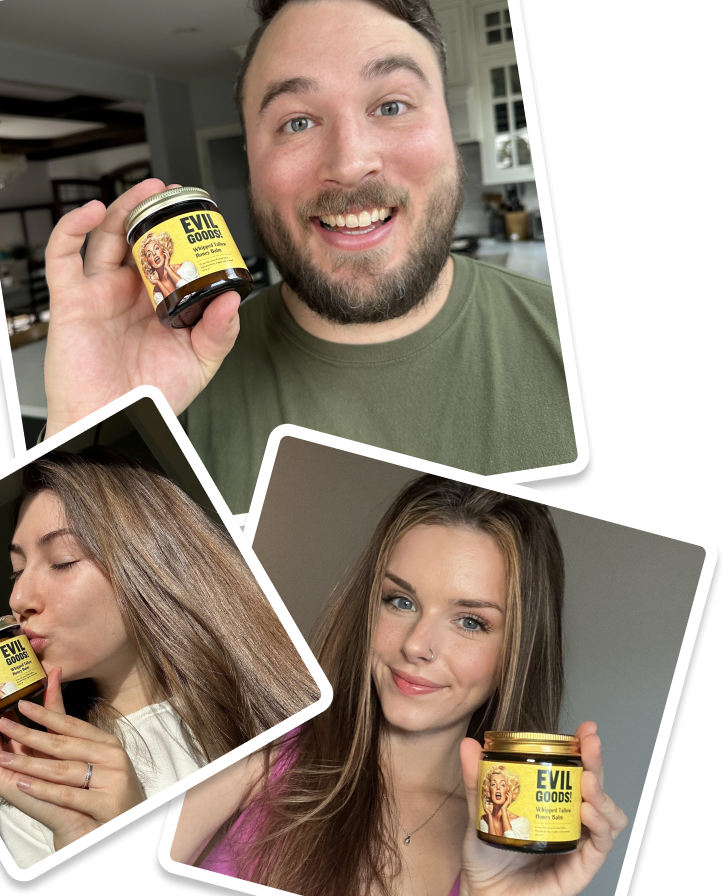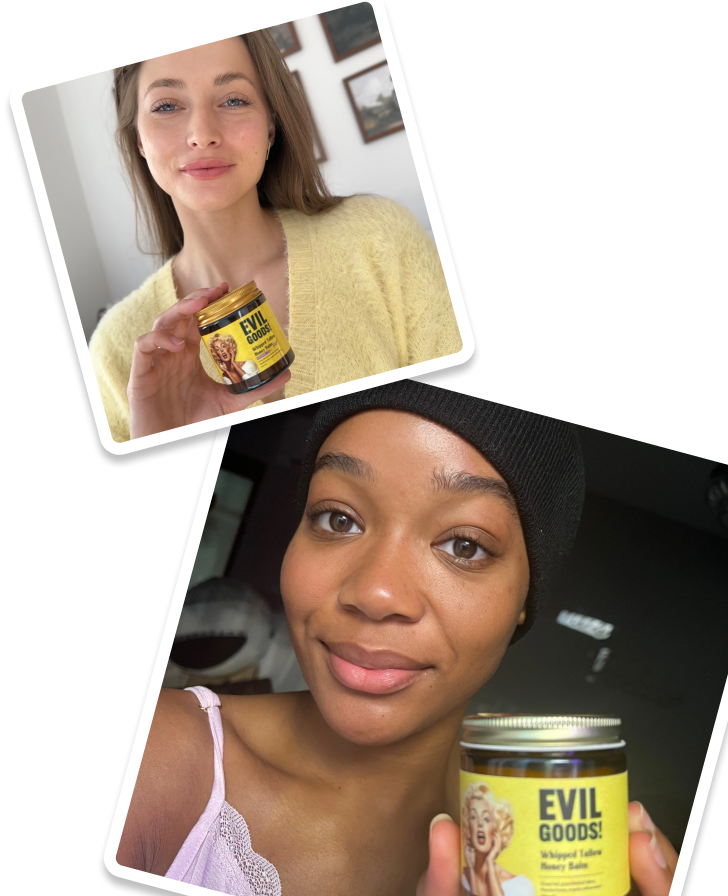Your skin is a living organ that deserves a balanced diet of potent nutrients, and not toxin-laden fluff masquerading as skincare products. Magnesium is one of the magic minerals you need to support the skin from the inside out. Certain types of magnesium are vital to skin health, stress management, muscle relaxation, and nerve function.
Here, we break down the best magnesium for skin, the science, the pros and cons, and talk about how magnesium-based skincare products have raised the bar.
Why Magnesium is Essential for Skin Health
Magnesium is an essential mineral, serving over 300 enzymatic functions like ATP stabilization, protein synthesis, DNA replication, central nervous system function, and vascular tone. (National Institutes of Health, Office of Dietary Supplements.).
When it comes to the skin, magnesium provides the following benefits:
- Barrier function & hydration: Exposure to or bathing/immersion in water containing magnesium, such as Dead Sea salt, moisturizes your skin and increases barrier function in atopic dermatitis (Proksch et al., 2005).
- Anti‑inflammatory response: Magnesium calms redness and irritation by modulating histamine and suppressing cortisol.
- Collagen and repair: It maintains collagen synthesis and skin structure.
- Stress buffer: Magnesium diminishes stress-related skin issues by inhibiting cortisol and enabling GABA/neurotransmission.
Moreover, poor magnesium intake (common among U.S. adults) is linked to insomnia, muscle tension, faulty nerve impulses, high blood pressure, pale skin, and acne (National Institutes of Health, Office of Dietary Supplements).
Oral vs. Topical Magnesium
There are two paths to using magnesium for healthy skin. You can take magnesium orally as capsules or supplements. This helps with stress relief, energy production, nervous system balance, and sleep quality. You can also apply magnesium topically on the skin as sprays, lotions, or salts to help with hydration, minor inflammation, and muscle relaxation.
You can combine both methods to give you the best results, including improved systemic nourishment and targeted, tangible skin support.

Topical Magnesium for Skin
Topical magnesium is ideal for those seeking localized relief and visible skin benefits. It helps deliver magnesium directly to the outermost layers of the skin, supporting hydration, inflammation reduction, and muscle relaxation. The following are some of the best types of topical magnesium for skin because of their absorption and soothing properties.
1. Magnesium Chloride
Magnesium chloride is one of the most sought-after forms of magnesium for skincare products. It's typically used in magnesium oil or spray in the form of magnesium chloride hexahydrate, which features skin-calming and anti-inflammatory properties.
Magnesium chloride supports muscle relaxation, improves the skin barrier, reduces inflammation, and promotes quality sleep. Proksch et al. (2005) agreed that topical application of magnesium improves the expression of barrier proteins and hydration of the skin. It also counters inflammatory skin conditions like acne, eczema, and redness.
Magnesium chloride spray also improves sleep quality because of its natural calming effects and more convenient follicular absorption. Chandrasekaran et al. (2016) found in their research that magnesium ions are absorbed into the body through the hair follicles.
2. Magnesium Sulfate
Also known as Epsom salt, magnesium sulfate is a traditional folk medicine for sore muscles and cleansing. You add this type of magnesium salt to warm baths, offering hydration and relaxation in one. Magnesium sulfate is cherished in skincare due to its calming properties, easing tensions in the body and mind.
Clinical studies also show that Epsom salt increases skin barrier function in atopic dry skin and triggers mild detoxification, flushing out lactic acid build-up in the muscles and skin (Proksch et al., 2005).
3. Magnesium Lactate
Magnesium lactate is a newly developed form of magnesium that has highly effective skin care actions, but does not cause irritation even in sensitive or reactive skin types.
It's a soft magnesium lactic acid salt that exfoliates and hydrates softly, soothes redness, and balances oil levels. It also encourages cell turnover, which makes it ideal for those with sensitive skin or rosacea-prone skin.
4. Magnesium PCA
Magnesium PCA is another second-generation ingredient utilized to maintain skin health. It combines magnesium with PCA, a natural component in the NMF of the skin, to add moisture content and reduce inflammation without congesting pores and drying out the skin.
Magnesium PCA draws water into the skin, firms the skin, and reduces inflammatory conditions like eczema and acne. Because of this, it’s suitable for all skin types, especially stressed or dry skin.

Oral Magnesium Forms
Unlike topical magnesium, oral magnesium supplementation is an inside-out method that balances hormones, calms the nervous system, releases the best in magnesium levels, and improves overall cellular health. We’ve gone into detail about some of the best oral magnesium forms for the skin below:
1. Magnesium Citrate
Magnesium citrate is produced by reacting magnesium with citric acid to obtain a very bioavailable and easily absorbed magnesium. It’s widely employed to treat magnesium deficiency and is regarded as one of the most effective magnesium supplements for the skin because of its immediate effects. The skin tends to look dull or irritated due to low magnesium levels, and magnesium citrate supplements can easily boost these levels.
Other than its outstanding absorption, this form also has mild laxative effects, which improve bowel movements. This promotes detoxification, helping to get rid of internal toxins that affect the skin. It also generates energy in skin cells, promoting vitality and oxygenation of cells. Through its reduction of internal inflammation, magnesium citrate not only controls breakouts and accelerates healing of issues like acne and eczema, but is an ideal form of magnesium for clear and balanced skin.
2. Magnesium Glycinate
Magnesium glycinate consists of magnesium and an amino acid named glycine, which nourishes the nervous system with calming effects. It’s one of the mildest and easily absorbed types of magnesium supplementation recommended for daily intake, especially for people with sensitive stomachs.
In skin health, magnesium glycinate is instrumental in balancing cortisol levels and stress management. Higher levels of cortisol are bad news for acne and other skin conditions, and lowering cortisol levels helps maintain a clearer complexion.
This type of magnesium also improves sleep quality, which is important when it comes to repairing the skin at night. It's a safe, long-term supplement that doesn’t have a laxative effect like magnesium citrate. It enhances the skin barrier by helping the nervous system maintain balance and the skin become more resistant to environmental provocation and inflammation.
3. Magnesium Malate
Magnesium malate is a combination of magnesium and malic acid, which is a naturally occurring compound present in fruits such as apples. This particular form is very useful in boosting energy in the human body, and it’s highly regarded in the cellular restoration of the skin. It aids in the production of ATP (adenosine triphosphate) that serves as the energy source behind the regeneration of skin cells and the natural glow of our skin.
This type of oral magnesium is especially useful to individuals with chronic fatigue or muscle pain as it soothes soreness and promotes muscle and nerve health. Also, it collaborates with the liver and muscles to flush out toxins, and is one of the most energizing forms of magnesium out there.
4. Magnesium Oxide
Magnesium oxide contains elemental magnesium in abundance, but it’s very poorly bioavailable and only a very small proportion gets absorbed into the body. For this reason, it’s mainly used as a strong laxative and not as a skin-enhancing magnesium supplement.
Even though it can ease temporary constipation, it's not skin-friendly. Ingesting inappropriate amounts can cause gastrointestinal problems, such as bloating or cramping. Unlike other forms, its low magnesium absorption (bioavailability) makes it a poor alternative for replenishing magnesium and improving skin health.
Do You Consume Enough Magnesium?
To prevent magnesium deficiency, we recommend consuming dark leafy veggies, grains, nuts, and seeds (e.g., spinach, almonds). The recommended daily allowance (RDA) when using magnesium supplements is 320mg/day for women and 420mg/day for men.
The indications of deficiency include tiredness, sleeplessness, muscle soreness, tingling nerves, and dry, irritated skin. If symptoms don’t resolve through dietary intake and oral magnesium supplements (such as citrate, glycinate), see a healthcare professional.

Magnesium Skin-Centric Routine
|
Time |
Method |
Benefits |
|
Morning |
200 mg magnesium citrate with breakfast |
Sustained energy, digestion, stress buffer |
|
Post-Workout |
Magnesium sulfate foot soak or bath |
Muscle and tension relief |
|
Evening |
Magnesium chloride oil spray |
Relaxation, improved sleep quality |
|
Night |
200 mg magnesium glycinate |
Calming the central nervous system, barrier repair overnight |
|
Weekly |
Use products containing magnesium lactate/PCA |
Deep hydration, anti-inflammatory skin barrier boost |
Safety & Precautions
- Excess oral magnesium (oxide, sulfate) can cause diarrhea or cramps. Always stick to recommended doses.
- Patch test for topical tingle; wash off if you start to experience irritation.
- Always consult a healthcare professional if you have kidney issues or take medications.
- If you're pregnant or breastfeeding, get medical advice first.
Also, make sure to buy your magnesium from trusted sources. Some commercial products claim to contain magnesium but are full of toxins. See how you can stop feeding your skin with toxins.

Frequently Asked Questions
Which Magnesium is Best for the Skin?
Topically, magnesium chloride and magnesium lactate function most effectively. Magnesium chloride offers anti-inflammatory and muscle-relaxing benefits, while magnesium lactate offers hydration and barrier protection.
Oral supplements of magnesium glycinate and magnesium citrate are also great choices. Glycinate is a soothing compound that balances cortisol and inflammation caused by stress, while citrate aids digestion, cellular energy, and detox, resulting in clearer skin internally.
Which Magnesium is Best for Anti-Aging?
Magnesium l-threonate and magnesium malate are the top anti-aging picks. Magnesium malate supports mitochondrial energy and ATP production, while magnesium l-threonate crosses the blood-brain barrier, balancing stress and sleep. These magnesium supplements preserve collagen integrity, hydration, and resilience, making them useful in maintaining youthful skin.
Does Magnesium Improve Your Skin?
Yes! In fact, magnesium plays a vital role in improving skin at cellular and superficial levels. In its topical form, it reduces inflammation, hydrates, and strengthens the barrier function of the skin, which is why it’s so useful in treating eczema, acne, redness, and hypersensitivity. Oral magnesium enhances sleep quality, muscle and nerve function, protein synthesis, and glucose regulation of the blood, factors that improve the overall skin color and tone.
Which Magnesium is the Best for Hormonal Acne?
Magnesium glycinate is the best form to use for hormonal acne. Its application of magnesium and amino acid glycine promotes the nervous system, reduces stress, regulates cortisol levels, and provides sound sleep. You can also take oral glycinate in addition to topical magnesium chloride for extra protection against acne.
What Are the Symptoms of Low Magnesium?
The symptoms of low magnesium include:
- Low energy and fatigue
- Muscle pain, soreness, or cramps
- Poor sleep quality or insomnia
- Anxiety, mood swings, or irritability
- Hormonal imbalance and breakouts
- High blood pressure
- Dull, inflamed, or reactive skin
If you’re suffering from these symptoms as well as skin issues, it may be time to boost your levels through magnesium-laden foods, such as dark green leafy vegetables, seeds, whole grains, and take magnesium supplements, or try topical magnesium.
So, What is the Best Magnesium for Skin?
Topically, magnesium chloride is most suitable as a spray or oil, as the body quickly absorbs it, whereas magnesium lactate and PCA are the best forms for lotions, as they promote moisture retention and reduce inflammation without congestion or dryness.
When taken orally, mix magnesium glycinate (sleep/stress), citrate (absorption), malate (energy recovery), and L-threonate (nervous system balance). This mix assists in calming effects, better sleep, muscle relaxation, lower blood pressure, and skin glowing health, way beyond superficial solutions.
Your skin deserves more real ingredients and results-driven nutrition, not toxic gimmicks. Try Evil Goods today and feel the fast absorption, barrier support, and luxurious texture of our Magnesium Cream, backed by science for your skin's glow.
References
- Chandrasekaran, N. C., Sanchez, W. Y., Mohammed, Y. H., Grice, J. E., Roberts, M. S., & Barnard, R. T. (2016). Permeation of topically applied Magnesium ions through human skin is facilitated by hair follicles. Magnesium Research, 29(2), 35-42.
- Proksch, E., Nissen, H. P., Bremgartner, M., & Urquhart, C. (2005). Bathing in a magnesium‐rich Dead Sea salt solution improves skin barrier function, enhances skin hydration, and reduces inflammation in atopic dry skin. International journal of dermatology, 44(2), 151-157.
- National Institutes of Health, Office of Dietary Supplements. (n.d.). Magnesium: Fact Sheet for Health Professionals. U.S. Department of Health and Human Services.
- Werner, T., Kolisek, M., Vormann, J., Pilchova, I., Grendar, M., Struharnanska, E., & Cibulka, M. (2019). Assessment of bioavailability of Mg from Mg citrate and Mg oxide by measuring urinary excretion in Mg-saturated subjects. Magnesium research, 32(3), 63-71.

Dr. Elena Dinkollari
MD, Dermatologist & Endocrinology Assistant
Doctor Approved
